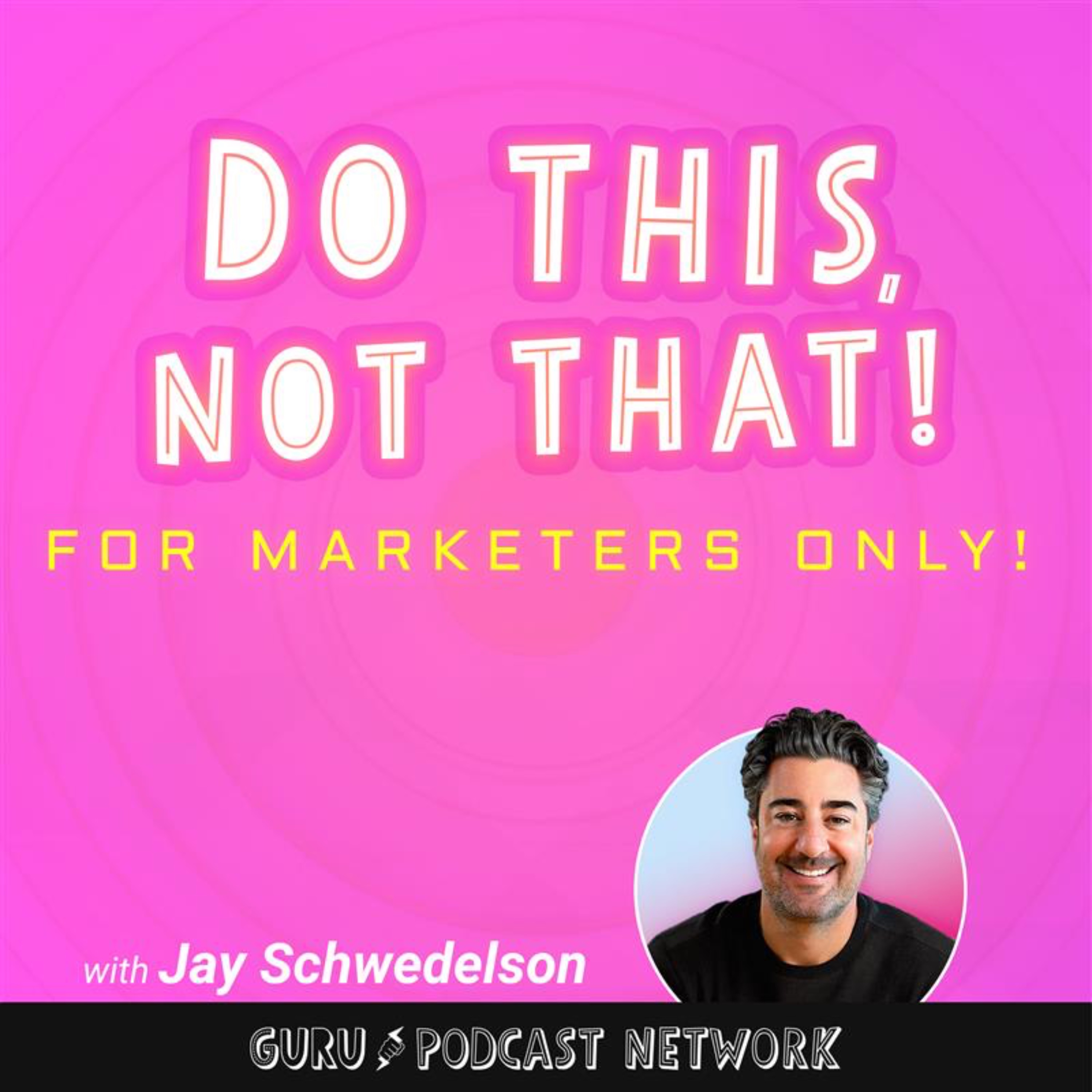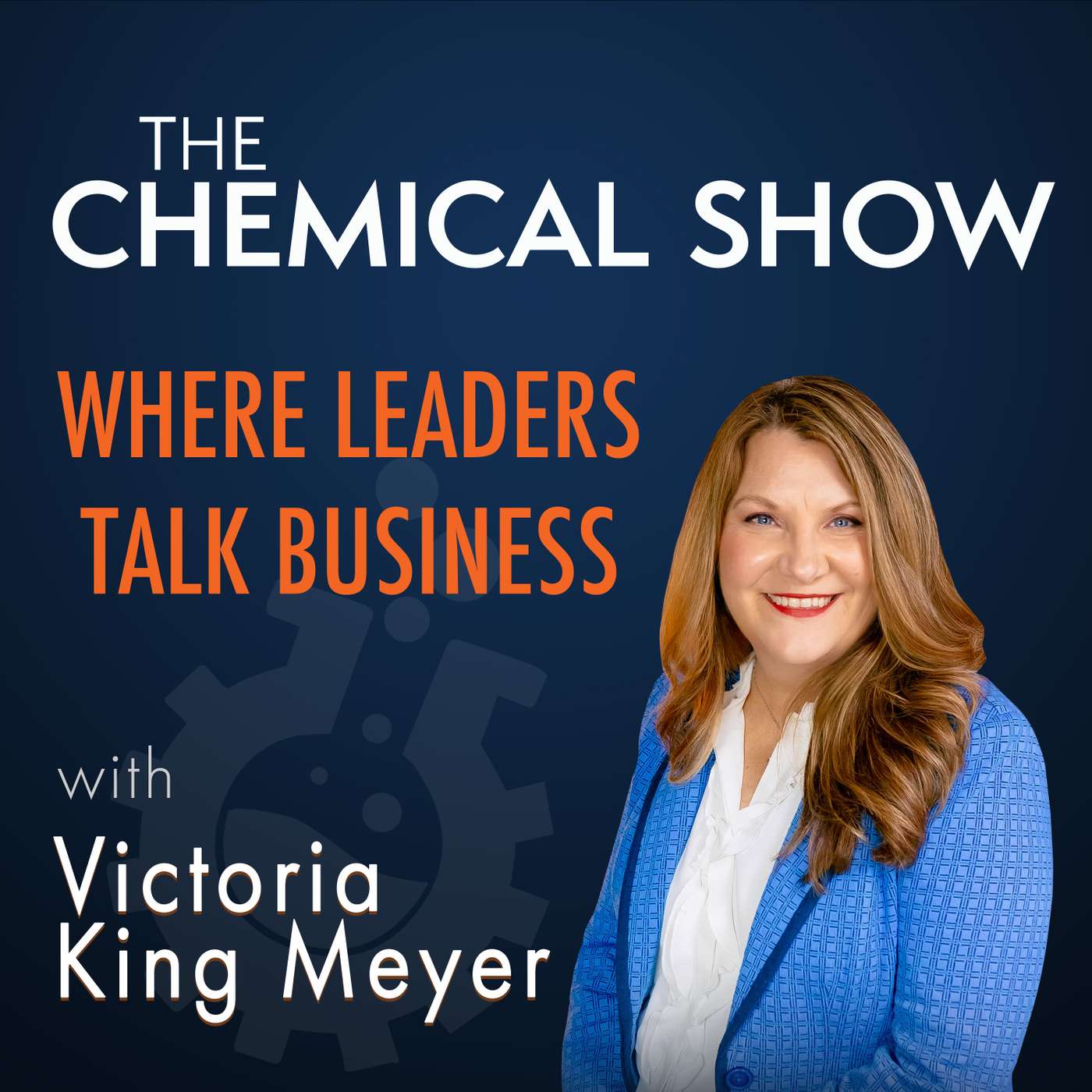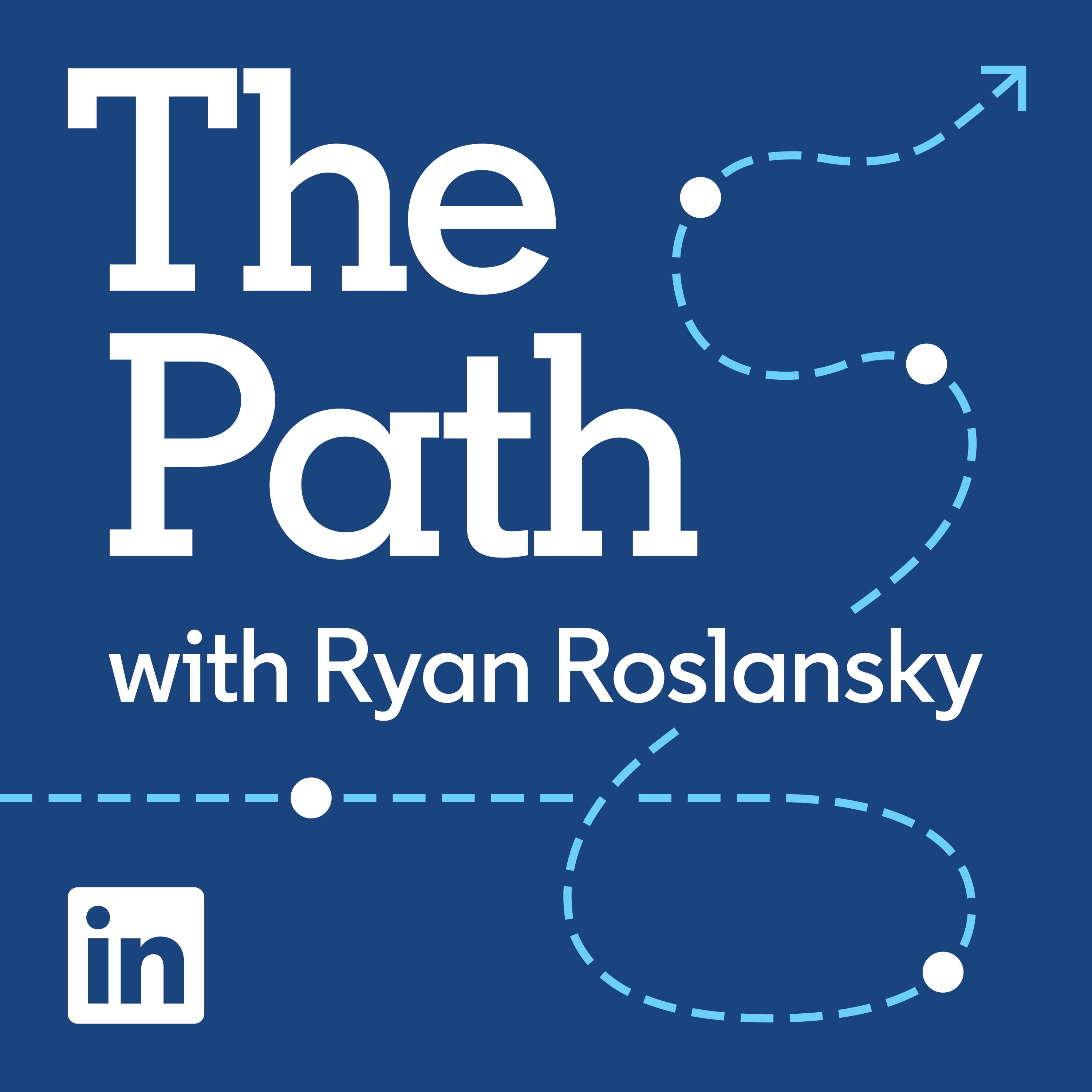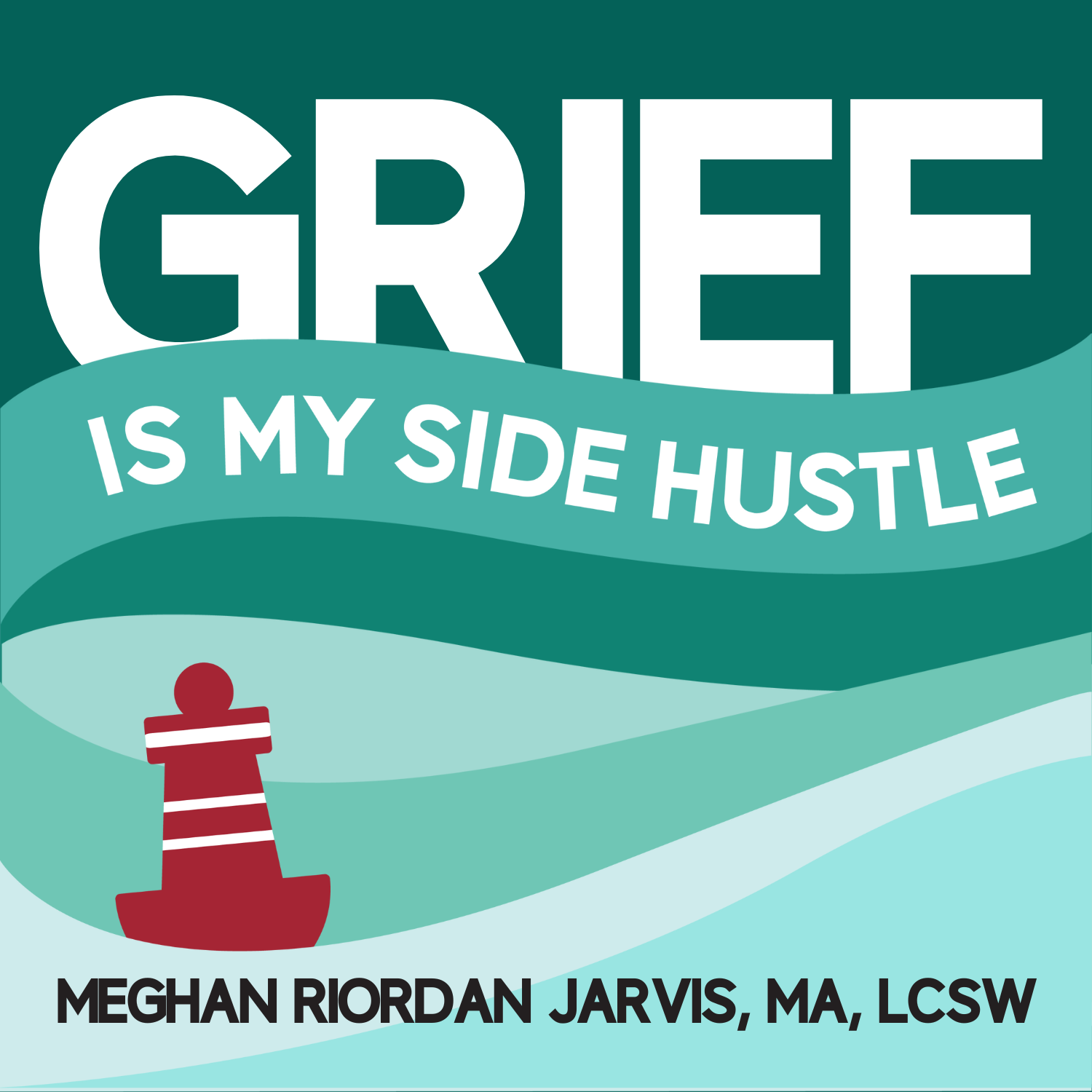
Author’s Edge: Smart visibility, marketing, and publishing strategies for experts ready to lead
The Author’s Edge is the go-to podcast for accomplished experts ready to grow your impact, expand your reach, and attract bigger opportunities through smart book marketing, visibility, and publishing strategies.
Hosted by nonfiction book coach and marketing strategist Allison Lane, this show gives you clear, honest insight into what actually works when you want to be known for what you know, without wasting time on noisy tactics that don't fit your goals.
Each week, you’ll get practical guidance and straight talk from people who move the needle, including Daniel Murray of The Marketing Millennials, bestselling author and TEDx speaker Ashley Stahl, literary agent Sam Hiyate, national TV host Dr. Partha Nandi, marketing strategist Rich Brooks, behavioral expert Nancy Harhut, and bestselling author Tracy Otsuka.
Whether a book is part of your path or not, you’ll learn how to clarify your message, build a platform that matches your expertise, and choose visibility moves that create real traction through speaking, podcasting, partnerships, and publishing.
If you’re ready to lead with authority and grow long-term influence, The Author’s Edge will give you the tools to build visibility, attract opportunity, and make your expertise easier to find, trust, and act on.
Author’s Edge: Smart visibility, marketing, and publishing strategies for experts ready to lead
How to Make Your Book Go Bigger: Insider Secrets with Dr. Mara Einstein | Ep. 48
Have you ever wondered why some books take off while others struggle to get noticed? It’s not just about great writing… it’s about smart marketing.
Allison Lane sat down with Dr. Mara Einstein, a marketing expert, former MTV executive, and author of “Hoodwinked: How Marketers Use the Same Tactics as Cults,” exposing the hidden strategies brands use to influence consumers. As a professor, speaker, and media commentator, she helps people recognize and protect themselves from deceptive marketing tactics.
She reveals how big brands use cult-like tactics to influence consumers and how authors can apply similar strategies to grow their platforms. If you’re looking to increase visibility, attract the right readers, and build a lasting brand, this episode is packed with must-know insights.
🎧 Tune in now to transform your book marketing strategy.
What You’ll Learn:
- The biggest mistake authors make when trying to build their platform.
- Why traditional publishers look for more than just a great book, and how to meet their expectations.
- How to develop a personal brand that makes you unforgettable.
Resources Mentioned:
- Dr. Mara Einstein’s Book: Hoodwinked: How Marketers Use the Same Tactics as Cults https://bookshop.org/a/55773/9781493086153
- Follow Dr. Mara on TikTok: https://www.tiktok.com/@drmaraeinstein
- Allison’s Free Annual Content Calendar: https://www.lanelit.com/content
Timestamps
[00:03:06] The #1 mistake authors make when marketing their books.
[00:12:23] The influencer strategy that’s changing book promotion.
[00:19:32] The branding shift that changed everything for Dr. Mara.
[00:26:05] How she gained 25K TikTok followers in six months.
If you enjoyed this episode, take a moment to rate, review, and share The Author’s Edge. Your support helps us bring more expert advice to authors like you.
Have questions or insights? Email me at allison@lanelit.com. Let’s keep the conversation going. Tune in now. https://www.youtube.com/watch?v=lp5vMSvXbdg
Get Allison's free guide 7 Shifts to Build Real Authority - and get recognized for your expertise (not your follower count): https://lanelit.com/authority
Rate, Review, & Follow The Author’s Edge
“So incredibly helpful!” >>> If that sounds like you, I’d be so grateful if you’d rate and review the show! Your support helps more authors build their brands, reach their audiences, and launch their books successfully.
Here’s how:
- Click here, scroll to the bottom, and tap to rate with five stars.
- Select “Write a Review” and tell me what you loved most about the episode!
And don’t forget to follow the podcast if you haven’t already. I’m sharing bonus episodes packed with insider tips, and I’d hate for you to miss out. Hit that follow button now.
LinkedIn @allisonlanelit
YouTube @allisonlanelit
Facebook @allisonlanelit
🔔 Subscribe or Follow for more tips and insights on publishing and marketing
👍 Like, comment, and share this video if you found it helpful!
We are not living in an attention economy, which is what economists would say, right? That people make money off our attention. What I argue is we live in an anxiety economy. It's not enough to get our eyes connected to your phone. It's to get us ginned up and enraged to a point where we continue doom scrolling, and then we continue to get anxious, and then we push a button because that anxiety needs to be released.
Allison:Today, we're diving into what it really takes to go bigger within your career. We're going to talk to Dr. Mara Einstein, powerhouse marketing expert, former MTV executive, narrator of Netflix's documentary, buy now, a shopping conspiracy. Author of seven books, professor of many years. Her latest book is Hoodwinked, how marketers use the same tactics as cults. And that it exposes the cult tactics brands are using to capture our wallet and our loyalty. And in this book, she took a different approach than her previous books, strategically seeking an agent and a traditional publisher as part of her career growth path. And we're going to talk about How she built her marketing strategy, how she developed her branding and why. How she expanded her outreach to take her work and her message to people who needed to know it, but she wasn't in front of them yet. If you're looking to scale, your career or you're thinking about your encore career or a career pivot, you don't want to miss this conversation because Dr. Mara Einstein, she knows what she's doing, and she's been methodical, and one of my favorite clients ever. But you know, she knows her poo and you need to know this. So, without further ado, let's welcome Dr. Mara Einstein. Welcome Dr. Mara Einstein, I cannot wait to ask you so many questions because we have known each other since a few years now when you said, I know that I want my next book to be bigger and you wanted it to go bigger and you were planning your next 20 years in your career.
Dr. Mara:Yeah.
Allison:I'm going to ask you some questions about the book, Hoodwinked. Here it is. Look at us, which, oh, you went through so many different titles for this book. I love it. And I'm going to ask you about your particular challenge, because you've written so many books before this one. So, this is not your first rodeo and ticket to the dance.
Dr. Mara:Right.
Allison:Been here, done that, been a speaker, always been a badass. So, when it comes to the book, let me ask, because I'm sure people are on their edge of their seats, pulling over in their cars. What is a mistake you see people making when it comes to recognizing that the marketing tactics that they think they are seeing and that are overt are actually manipulating them?
Dr. Mara:Wow. Okay. So, I think one of the biggest mistakes that people make is that they think that that they can't be taken in. They think that that everybody else can be taken in but it's not going to happen. And in media, we talk about this as the third person effect, which is you know, that marketing affects those people, but it doesn't affect me. And it also comes in around in the same idea as cults and marketers. Target people when they're at their most vulnerable. So, The old marketer is going to be able to get you to fall into their trap when you're you're feeling great about yourself, when everything's going wonderful in your life. It's when you're tired, or you're depressed, or you just had a bad breakup with somebody, or any one of kinds of things, that somebody, either a marketer or a cult is able to come in and get you to believe things that you might not otherwise believe. And one of the ways that you might even think about this, a simple thing, is a way you might think about this is that, you know, when do you pick up your phone and start engaging with it after you've had a really long day? You're really tired, you've cooked dinner, the kids are doing their homework, put them in bed or whatever it is, and then you sit down and engaged with your engage your phone. That's when you're exhausted. That's when you're least likely least likely to pay attention. That's when you're most likely to be drawn in, to the kinds of tactics that marketers use in order to get you to spend more money.
Allison:That is a wake up call for me of that's not a time to pick up your phone. I need a different routine. Once I slam dunk the kids, please go to your room and don't ransack the kitchen while I'm asleep. That's not cool. When we were working and developing your book proposal and your querying strategy, I became increasingly horrified as I learned, how easily brands and companies are steering us this way and that way, especially when it comes to voting and religion and what bank you choose. But also our children, because my daughter is 14 and she has to have it, whatever it is. Her shoes were not white enough and I said, stop wiping your shoe with your other shoe. That's how you stop getting dirty shoes. But the kids, especially with major identity purchases like clothes or universities. One big epiphany I had, well it wasn't my epiphany, it was you sitting me down and saying this is actually how colleges work. Is that colleges put our kids on email and direct marketing mail campaigns early like, 8th and 9th grade? So, I created a false email account for my son, who's now a junior in high school,
Dr. Mara:Yep.
Allison:And he's an athlete, and he's super fast. I mean, that is related to being on track in football. Because the most expensive colleges have the most delicious marketing creative. I mean, eye candy, gorgeous collateral brochures, and those are the first ones to show up.
Dr. Mara:Right.
Allison:So, because you told me that, I now grab things out of the mail so that he doesn't even see them.
Dr. Mara:The thing is, I think that most people don't realize is that the chief marketing officers at colleges and universities now come out of corporate backgrounds. And so, I mean, it used to be most of the people that existed at the administrative level in universities come out of the faculty ranks. They didn't come out of Pottery Barn. They didn't come out of General Mills. And so now, because Colleges have become so competitive, they have to use the kind of marketing tactics that are used for consumer purchases. And so, you know, you and I have been around long enough that we have engaged with these kinds of things, but our kids, yeah, they're savvy, or they think they're savvy. But not to the same extent that you and I, who've been dealing with this for a long period of time. And so, the other issue that happens is that when you're talking to adolescents in teenagers, you're talking to people who haven't solidified their identity. Never mind that their brains haven't finished developing.
Allison:Right.
Dr. Mara:But they haven't solidified their identity. The the thing that's going to get them is what is the school that's going to say something about me, not just about about me, but it's gonna tell everybody else who I am.
Allison:Right. And that way you get to wear that badge of honor of, now I am defining who I am by the college that I've chosen, or not chosen. Yup..
Dr. Mara:And the schools don't make it any better. I mean that, I'm not even talking the colleges, I'm talking about the High School. Because the counsilors come in. And they support the kids going for the higher level schools. And then, they supporting the idea that you know, you're allowed to wear the Swag down the high school halls. I think it should be banned. I think it shouldn't be allowed that students can wear that after they get into the colleges. Never mind Ivy Day. When all the kids get online and pretend they're opening up the emails, and say, Oh, I got into this school and I got into this school. I mean, the word of mouth marketing on that, and the school's perpetuated, is, you know, all kinds of free advertisements for them because everybody's seeing oh, who got in. And the parents stand around, and everybody pretends like they just opened the email.
Of course, they didn't just opened the email. They knew they look at it to see whether or not they got in.
Dr. Mara:And then, they make these very high end kind of videos. I was saying, I got into, you know, three IVs and I missed two IVs, but I got into a couple of public IVs. It's like, oh, it's kind of gross.
Allison:Yeah. And nobody posts their, I didn't get in video.
Dr. Mara:Of course not. Of course not.
Allison:So, what's one big shift you've seen recently in how companies are using psychological behaviors to drive our behaviors. Like now versus five years ago.
Dr. Mara:I think probably the biggest shifts are happening around influencers and how influencers work together. Because it's not that influencers can't grow because influencers have been growing. They've been very successful. They've also been very successful in not letting people know that they're being sponsored. Because the FTC frankly, can't stay on top of it. But the other thing that's happening and we sort of saw this in the bro space, in terms of people like Joe Rogan have been Shapiro they on. And they validate each other's, audiences, right? So, they people to others audiences. The same thing is happening in the influencer space. So, one influencer was support another influencer who support another influencer. And all of the stuff sort of molds together to grow everybody's audiences. And so, while you think, oh, you know, oh, I like both of these. The influencers which you don't be get to understand is that they're all working together to get you to buy whatever it is that they're selling. And it's become just significantly more coordinated in the last five years than it was before.
Allison:Right. They all went to the same mastermind six years ago and now they go to summer camp together.
Dr. Mara:Yeah. Yeah.
Allison:The band of brothers and they're doing like the ultimate fighter camp just because it's fun. So, yeah. And it smells bad and you don't know why. It's because it stinks.
Dr. Mara:Right.
Allison:That is so helpful. I'm going to keep a lookout for that. Now, let's pivot to talk about this book process and this path.
Dr. Mara:Mm hmm.
Allison:Why was it so important for you to seek an agent and a traditional publisher for a hoodwinked versus your other seven books were with university presses, and they were unagented. Why was it important for you and how did that fit into your bigger career strategy?
Dr. Mara:Right. Well, the last book that I did wasn't a university press. It was a popular press, but it was a small, independent spec kind of print on demand press. And what happened with that book, and this is a warning to authors everywhere, is that they did not produce the books that went to Amazon or to bookstores. They had a secondary press who did that. And so, I had a New York Times review of the book come out. I will also say the book came out just before Trump was elected the first time. So, I'm also in the situation now again of Trump being elected and him sucking all the air out of the promo space, but we'll leave that for perhaps another question. But what happened was, the book came out at the end of October. At the end of November, I had a glowingly positive review in the New York Times, right? Right before the holiday sales season, the book was not at Amazon or in bookstores until the end of January. Yeah, that starts. Right? So, I had no control over the fact that here I was the best promotion you could possibly have.
Allison:That's like a French kiss. I mean, come on.
Dr. Mara:It was devastating, it was really devastating. And so, what I said to myself after that, and I thought that was a really important book, and it was a really important book. And Black Ops Advertising was the first book to explain to people what native advertising was and branded content. People didn't know what it was back then.
Allison:They still don't know what it is. But that's okay, we can't do all the things.
Dr. Mara:So, I said, you know, look, it's a lot of work to write a book. Well, this book took three years. It's really 30 years of work. Everything that I am and the work that I've done over the last 30 to 40 years is in that book. So, I said I'm not writing another book unless I work with an agent, work with the press, with the press that's going to make sure that the book gets into stores and all of that good stuff. Because otherwise it's just not worth it to me. It's just too much, it's too much work to do that.
Allison:Right, because you're speaking on big stages, heading to South by Southwest. You started, TikTok account that quickly lit up in fuego. From that, you got cold calls, people reaching out to you. Can you come and keynote our..
Dr. Mara:Two
Allison:abroad and two documentaries. I mean, holy shnikes. That is nobody has time to do more because you particularly knew not just the operations, but you knew where you wanted to go. You said to me, this is my plan. I'm teaching university, but I'm also a speaker. I also travel for speaking and I want to do more than of that. And so, you were making very deliberate choices. Now, what's a mistake? You see academics making when they're trying to level up their careers or expand outside of, you know, maybe just tenured, especially after 50. Because I feel like there's some sort of breaking point where they've been department head
Dr. Mara:Right.
Allison:And they're thinking, I don't want to teach four classes every semester for the next 20 years.
Dr. Mara:Right. You know, I think there's been a fundamental shift in academia because of what the marketplace is like. The expectation is that that we will be public figures, that we will be public academics. In a way that didn't necessarily exist ten years ago. And it's because University is need the promotion, frankly. Now, my university in which I won't mention, but you can look up very easily, has really terrible promotion. Really terrible promotion. And they have not been helpful to me at all. So, one of the things that I would say about academic to academics is you need to learn how to be your best mouthpiece. You have to learn how to promote yourself better than anybody else. Because unless you're working for a really large academic institution, they won't have the bandwidth to promote you. Other than to repost the stuff that you've already gotten for yourself. I would also recommend you know, trying to, and for a lot of academics this is a difficult shift, stop trying to write. I mean, for me, and this has always been my situation, I never expected to go to the Ivy Tower, and never, ever, ever, ever wanted to. And my feeling is that if we're going to do this, we're going to do it. academics. I never, ever, ever, ever, ever wanted to do that. And my feeling is, is if we're going to do this research and not take it out into the world. Then, you know, kind of what's the kind of what's point? My point is for us to take our understanding and our learning and bring it out to people so they can actually use it, which is part of the reason why frankly I joined TikTok was that I knew that not every body is going to go out and buy my book but they should. But not every body can afford to. Or they might be expose to the book and they can go to the library and pick it up. But these are ideas that a lot of people don't know about or they've kind of heard something about. And so, to have the opportunity to engage with people in that space that I might not meet anywhere else has been wonderful, frankly.
Allison:Yeah, it's been unbelievable. One of the testimonials, one of the endorsements for your book, came from someone you met. I think I might have pointed her out to you at some point. Like, you should be talking to her.
Dr. Mara:Mm
Allison:But Daniela Mastanek Young is the author of Uncultured, which is a memoir. And the two of you look at cults from different perspectives. But also you're a TikToker and she's a TikToker, and you're really speaking to the same reader, which is...
Dr. Mara:It's very funny because people constantly say, Are you friends with the knitting cult lady?
Allison:You are now.
Dr. Mara:Yes, I am. Yes, in fact, I am.
Allison:Yeah, yeah, yeah. The fact that you made that shift, what is a shift you made in your marketing and branding strategy, your approach this time compared to your previous books?
Dr. Mara:I made the mistake of creating, now, now you, you have to remember I wrote my first book in oh, my God 21 years ago. 2004. And I think it was my second book that I made my first website for. And so, what happened is, every time I wrote my new book, I created a new website, which is like wrong So, the other thing that happened too, is every time I wrote a new book, people knew me for the book, which is that book. But I started my career being a a policy wank. Then, I wrote a book about media and religion. Then I wrote a book about cause marketing and corporate social responsibilities. Then, I wrote a book about marketing, you know stuff marketing. So, every time another book came out, I was like, you know, who is this person? So I had to take a step back and say, okay, what is the umbrella idea of who I am and all the work that I've done over the last 20 years in terms of my writing. And so that became deceptive marketing. That's the, um, and it's interesting about the way I talk about it, because I don't necessarily want to say I'm an expert in deceptive marketing, because then it sounds like I'm an expert in telling people how to do deceptive marketing. And that's not what I want to come across as. But I'm an expert in helping you detect deceptive marketing yourself. That's how. Deceptive marketing and how to protect yourself from Your family, your pocketbook, your mental health against deceptive marketing. And so, it also became a question of, is it, you know, am I Mara Einstein? Is it Dr. Mara Einstein? Is it Mara Einstein, PhD? And so, all of my socials are Dr. D. R. Mara Einstein, cause the name's so good.
Allison:Seriously, I mean, if you have a PhD and you're not using Doctor,
Dr. Mara:mm hmm.
Allison:I challenge you to send me an email at allison@lanelit.com and tell me why.
Dr. Mara:Yeah.
Allison:Because if you are a dude, you're using doctor, even when you're a chiropractor, which is not even a real doctor. Sorry, chiropractors. So, if you've earned a PhD and you're saying, well, I don't know, and you insist on going by your first name. I will flick you in the forehead because you deserve it and you are a doctor for the love of Pete.
Dr. Mara:So then, on the website if I was able to say under that umbrella of deception, I talk about religion, I talk about politics, I talk about purpose washing, I talk about education, I talk about brand cults. And I'm sure I'm missing one, but there's six things. I have free downsloads for people if you want to go into all of those or higher education. I guess that's the one I missed. So if people want to understand sort of the top lines of, what are the basic hoodwinked ideas or the basics behind the marketing of that area? What are the tactics in terms of you being hoodwinked in that space? And what are the things that you need to know in order to be able to protect yourself against that?
Allison:That's perfect because you did have to rise above all the different books. Like you are not your book, you are the brand and your book is one product. And you've done such a expert job because you are a media marketer, and you do know messaging. So, you've been able to land on that marketing statement, that brand statement of, I'm an expert in detecting deceptive marketing practices and helping you protect yourself and your family and your pocketbook and your mental health. Ooh, did I nail that?
Dr. Mara:Yeah, I also recommend though, people work with other people in that cause even as a marketer, one of the hardest things to do is brand yourself.
Allison:It is. That's why I have a job because no one seize themselves as the huge big effing deal that they are they always are thinking like, well, you know, there's a different, I wouldn't call myself an expert or whatever, and we can get into that later, but it is boring. And whoever you are, your humility is boring me. So, one of the things that aspiring authors are told is you've got to build your platform.
Dr. Mara:Oh, gosh.
Allison:What is a common myth people believe about building their platform? And why is it holding them back? Let's just call a spade a spade.
Dr. Mara:Okay.
I had people say that to me.
Dr. Mara:like, I wanted to punch this person in the face, I really did. And I'm not a violent person overall. But here I am coming with 25 to 30 years of marketing experience. You know, I haven't with the platform. Because I was a little busy writing the book and you know, having an aceademic career.
Allison:And being a global expert.
Dr. Mara:Right. And you know, all that kind of stuff. I promise you, I can figure out how to build the platform. And they're like, no, no, no, no, no. If you don't have the platform, you can't go. I was like, shut up. Shut up. And so, when I found my agent, that was not a problem for her, because she said, well, you'll do that over time. I said, it kind of I never reminded me when I was pregnant with my daughter. And I had people say to me, oh, you'll never finish your PhD because you got pregnant. No, I will finish while I will have my daughter and I will get a PhD. And yes, I did both.
Allison:Of course, you did.
Dr. Mara:When people tell you those kinds of things, it's a simple excuse for them to say no to you, don't take that as a no. And I remember this, this is really good advice, particularly for women. So, I also have an MBA in addition to a PhD.
Allison:Of Course, you do.
Dr. Mara:And one of the things that they taught us in negotiations is that when men are negotiating and they hear someone says no. what they hear is you haven't gotten from me what you need to hear yet. They don't hear no. When women are told no, women hear no and walk away. So don't that, don't do that. Reframe it and say, okay, you just haven't what you need to hear yet. I need to get it to the point, which could be, I will have a platform six months from now, and you should sign me in the meantime, and I promise somebody will get the book And I to get the book them. And seriously, I had 25, 000 followers on TikTok in about six months, six months to a year.
Allison:Yeah. Yeah, you really did in, think in three months you had 17, 000. I was keeping track because I do that with all of my clients.
Dr. Mara:Yeah.
Allison:Like, do you realize how many people are following you?
Dr. Mara:Yeah. Yeah, and so now it's like at 34, 000. But it's, you know, it's not like 100, 000 or whatever, but it's engaged with, who then send the information out to us. You know, key marketing folks, you know, in the same way we're talking about the influence reporting, we promote each other's work. Yeah. to other people and bring other people in, cross platforms and I have, you know, key marketing folks who are promoting me on LinkedIn and promoting me on Instagram. And so we, you know, in the same way I was talking about the influencers promoting each other, you know, we promote each other's work too.
Allison:Yeah. Okay, we're going to pivot again.
Dr. Mara:Okay.
Allison:This time turn to the left. What's a book you love that you want everyone to know about right now? And it can't be your book.
Dr. Mara:Oh, there was one I just read that I really loved and why can't I think of what it is? Well, on tyranny, but that's a whole different one. What I'm reading right now is Wild Faith, by Talia Levin. Really important for understanding what's going on in terms of religion and politics right now. And one of the things that she writes about in the book, and it was a real like aha moment for me and you, okay, this is an aha moment from someone who has been studying religion since 1995. And what she talks about is that what people don't realize is the evangelicals and the hardcore religious people here in the United States, when they think about the devil and Satan and all, they believe it. So, while some of us may that belief system, they really believe it. And when you believe that at that level, that helps explain a whole lot about what's going on in terms of our politics right now. Because for them, it's not just about putting a certain person in office, it's about putting a certain person in office person in order to be able to fight a devil. That's a whole a whole other level.
Allison:Of crazY. IThat's a whole other level of crazy. I hope that these are real. But also, you know, I sort of know that they're not.
Dr. Mara:It's not a republicans and it's not an evangelicals, but it is like 14% or something of the population. Which is enough to swing the vote.
Allison:Holy poo.
Dr. Mara:Yeah, no, it's, I mean, it's a shock. It's shocking.
Allison:Okay, two more things. Before we call this podcast complete, what's one thing you want to leave people with?
Dr. Mara:One you don't have to spend money. One, you don't. And probably, you're spending a lot more money than you need to, because you are getting wrapped up into the technology particulary, as it relates to social media. Because your phone is designed in every way possible to keep you connected to it, to keep you scrolling, to keep you anxious. And one of the Key ideas that I talk about in the book is that we are not living in an attention economy, which is what economists would say, right? That people make money off our attention. What I argue is we live in an anxiety economy. It's not enough to get our eyes connected to your phone. It's to get us ginned up and enraged to a point where we continue doom scrolling, and then we continue to get anxious, and then we push a button because that anxiety needs to be released. So, remember that every time you go online, social media isn't about giving you information. Social media is about selling advertising.
Allison:Great warning.
Podcasts we love
Check out these other fine podcasts recommended by us, not an algorithm.

Do This, NOT That: Marketing Tips with Jay Schwedelson
GURU Media Hub
Social Media Marketing Podcast
Michael Stelzner, Social Media Examiner
The Chemical Show: Where Leaders Talk Business
Victoria Meyer
ADHD for Smart Ass Women with Tracy Otsuka
Tracy Otsuka
The Inspiration Place
Artist Miriam Schulman
The Amy Porterfield Show
Amy Porterfield
The Path with Ryan Roslansky
LinkedIn
The Agents of Change Digital Marketing Podcast
Rich Brooks | Interviews with Marketing Experts | SEO | Social Media Market
The Shit No One Tells You About Writing
Bianca Marais, Carly Watters and CeCe LyraThe Manuscript Academy
#MSWL
What Fresh Hell: Laughing in the Face of Motherhood | Parenting Tips From Funny Moms
Margaret Ables and Amy Wilson
FRIED. The Burnout Podcast
Cait Donovan
The Marketing Millennials
Daniel Murray
Hoodwinked with Dr. Mara Einstein
Dr. Mara Einstein
Grief Is My Side Hustle
meghanrjarvis
I Don't Know How You Do It
Jessica Fein
My Rejection Story
Alice Draper
Take Care
Melody Mulaik
Insider Secrets to a Top 100 Podcast with Courtney Elmer | Podcasting Strategy for Business Growth
Courtney Elmer | PodLaunchHQ.com
Speakernomics
National Speakers Association
Write the Damn Book Already
Elizabeth Lyons
50, NOT DEAD
Kamrin Huban


